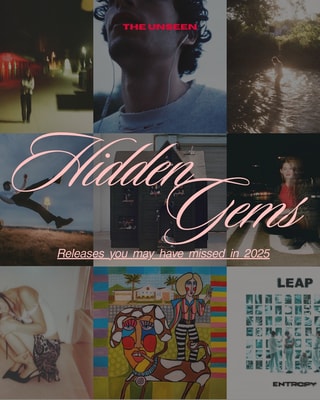What Andor teaches us about Fascism, the Monopoly of Violence and Western Imperialism
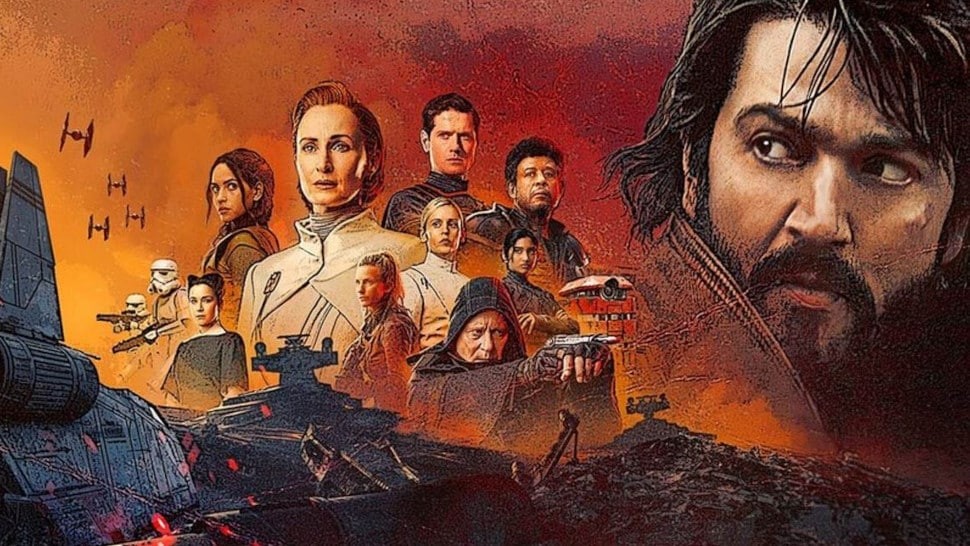
By now, all of you must have heard. The buzz on the internet, the constant discussions and praise have been everywhere; it's hard to escape. The acclaimed Disney+ show Andor has wrapped up after a legendary two-season run, and in its wake, it leaves a lot of emotions. On one hand, the level of quality is astounding. Star Wars, as contentious as the franchise is, has been hit or miss, with emphasis on miss, for a while now.
Toxic internet discourse aside, the controversy of quality goes beyond the Sequel-Trilogy and right into the streaming shows. Where The Mandalorian started promising, it fell off the deep end by season three. The Book of Boba Fett was never good to begin with; in the meantime, the Kenobi show was a cesspool of mediocre writing and filmmaking that was often baffling. The Acolyte got most of that hate, with internet discussions being right down unbearable. Needless to say, Star Wars, as it was and is, still remains in a rough spot. Culturally, the franchise seemed to tread the same waters, introducing a fatigue akin to the one felt towards the MCU. But then, along came Andor. Helmed by Tony Gilroy and supported by talented writers, one vision was constant. Right from the very first scene, which takes place in a brothel and ends with the killing of two corrupt cops, the show promises to be different. With Soviet inspired bank heists, its own Wannsee Conference aimed at planning a genocide, and direct comparisons drawn to French resistance during World War 2, the show sets out to capture the themes of the original trilogy.
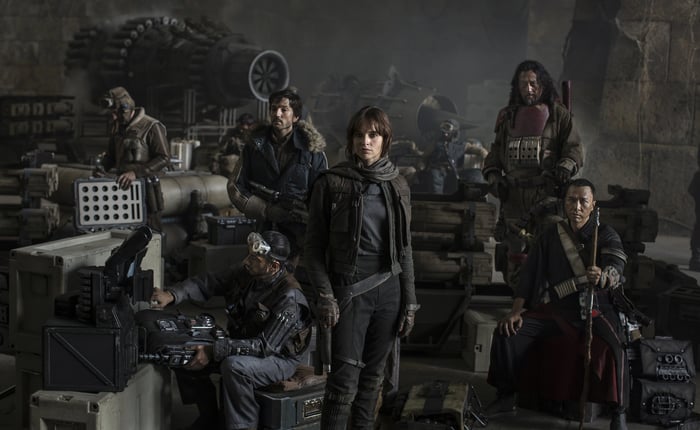
Conceptualized as a spin-off to the spin-off movie Rogue One: A Star Wars Story, it follows the character of Cassian Andor and his radicalization under the tyranny of the Empire. More doesn't have to be said about the show as far as the premise goes. Refreshingly, this show refrains from the usual Star Wars storytelling method of referencing everything and anything in a circle of ever more egregious cameos. Beyond minor appearances and mentions, the show largely stays in its own lane, which helps to set itself apart from the rest of the franchise. You don't need much knowledge about this universe beyond the movies, and even then, the show never hits you over the head with the pop-cultural equivalent of holding keys in front of a baby's eyes. There were multiple instances in which the show could have taken the lazy route of doing the most obvious fan service, and yet it never did. It might sound like a pretty low bar, but you'd be surprised at how hard this feat is to accomplish in this franchise.
But apart from this praise, what makes this show so special? It all begins with how it portrays the narrative and the characters. In a galaxy filled with the noble deeds of Jedi and the brutality of the Sith, stories about ordinary people often get less attention. What the franchise tends to forget is that behind every Luke Skywalker are a hundred ordinary men and women keeping the Rebellion afloat and functional. What it also forgets is that someone needed to build this movement from the ground up. The resistance to imperial power already existed when Skywalker joined at a crucial point in Episode IV. By then, the galaxy had gone through twenty years of continuous oppression and brutality. And while shows like Rebels laid some significant groundwork, it never worked out the dirty details thanks to its medium as a child-friendly animated show. The spying, the betrayal, the complicated nature of organizing an uprising. It shows the necessity of darker actions beyond the noble freedom fighters, the compromising of your own morals. When Luthen Rael, who poses as an antique dealer while secretly planning and coordinating the beginnings of the rebellion, says "I'm condemned to use the tools of my enemies,“ it isn't a direct dismissal of his ideals and actions, but rather a hard look at a reality in which moral superiority comes at the cost of achieving true and lasting change. Later on, he even chastises Mothma for being naive in her assumptions about rebellion and the price one has to pay. Any other show could have used the horseshoe theory of "all sides bad" when dealing with him, but Andor never does. It trusts the viewers with its scenes and the complexity of living within a dictatorship.
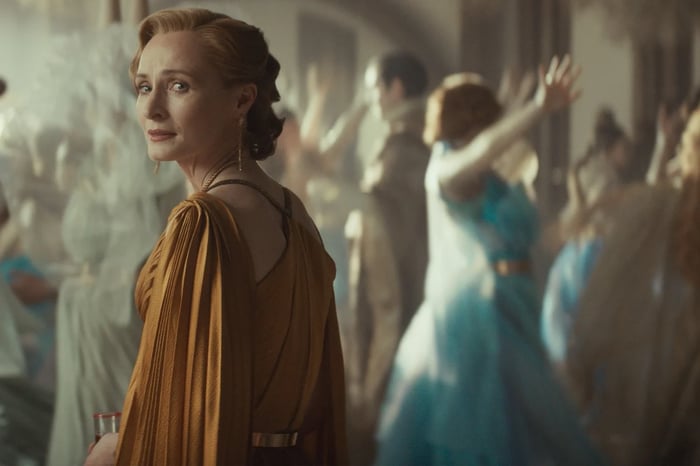
It’s an interesting contrast to modern Western narratives, which demonize all violent action against murderous systems and ideas of a system-change as a radical utopia born out of naivity. Sometimes a march or a protest isn't going to fix everything, because often the oppression gets so unbearable that an armed conflict is born out of necessity. It's a truth we don't want to face, but that resistance fighters all over the world know too well. This is true of colonial as well as fascist governments, which often go in tandem. For every Gandhi and Martin Luther King Jr., there is a Castro and Che Guevara, somebody who'll do what they have to for the people and the movement. I'm not stating that as an ideological assumption, but as a fact. Oppressors aren't going to roll over; they are forced to. As long as the challenge to their authority isn't threatening them in any way, they can continue without consequence. Violence doesn't become legitimate, just because it's done beneath the flag of a country. It is that very violence that keeps us in chains. Some of the most violent political figures of history are hailed by us as saviors and heroes, while the people standing up to them are denounced as villains.
Now, of course, Andor's message isn't "all violence is good,“ but rather an exploration of the ways we use and exercise resistance. For that reason, we get the character of Mon Mothma as a contrast. First introduced all the way back in the 80s in Episode 6: Return of the Jedi, she rose from Senator of the Republic to leader of the Rebellion and the Chancellor of the New Republic. When we meet her in Andor, however, she still functions as a senator, at this particular time for the Empire. What's interesting about her character is her constant struggle to work within a system that she's aiming to improve and keep as far from tyranny as possible. Mothma is trying to reform a political body towards justice and freedom, but refuses to acknowledge that it thrives because of the injustice it creates. This can be seen as a deliberate critique against liberalism as an ideology and political force. Sometimes you can`t better something that's fundamentally broken or, rather, working exactly the way it's intended to. Saying the current system needs to be fixed ignores the intent of inhumane policies and the history behind them. Oppressions always been a part of it, but now it's at our door and not just in some country most citiziens couldn't point out on a map. Acknolweding that is the first true step towards justice, change and the well-being of all people.
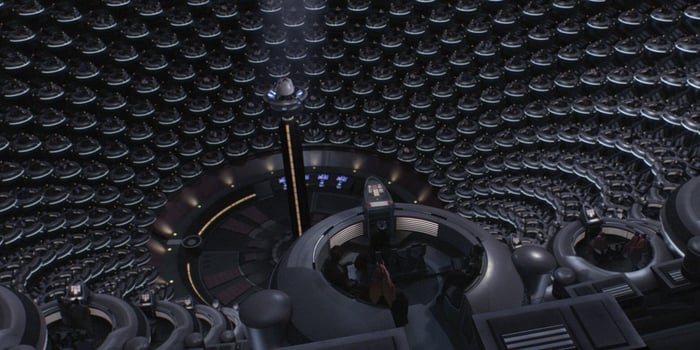
In regard to this point, we get a parallel to the times of the Galactic Republic in the very first episode of the first season. Cassian Andor grows up as a child on a planet that’s been destroyed by the mining industry. This operation, however, wasn't done by the Empire; it was done by the Republic, which at this time still saw itself as a legitimate democratic government. Remember, fascism doesn't exist in a vacuum; it gets cultivated and made popular. Much like Mussolini, Hitler and others, the Empire comes to fruition thanks to the workings of the powers before. Much like the US, the UK and other Western powers, which slowly descend into fascism right now at home, it has already oppressed many people, just on another continent or towards often unseen minorities. If Trump can detain immigrants and weather against everyone he deems un-American, then that is because the self-proclaimed saviors of democracy, the Democrats, laid down the groundwork with years of neoliberal policies aimed at suppressing the poorest and enriching the 1%. If the AfD can deport immigrants on a massive scale if they come to power, it's thanks to all the German parties - both conservatives and liberals - perpetuating already inhumane asylum practices at the European and now also national borders. Inhumanity gets made popular, the war on empathy is preceded by decades of ongoing struggles, and the dehumanization of non-white, non-cis-heteronormative people. Pretending now, like it came out of nowhere, or hailing those who enforced the same policies, only slightly less pronounced or where we can't see, is naive at best and hypocritical at worst.
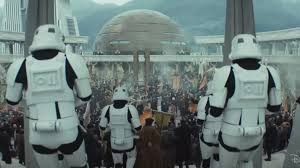
When the second season shows us the genocide of the Ghorman people, all for the sake of gaining resources to fuel the industrial war machine, the Empire doesn't just roll in and start shooting everyone. Instead, we see intricate planning and scheming to get the public opinion on their side and the general climate in Ghorman to a boiling point. It drives up a hate campaign and constant propaganda against the planet and its inhabitants, all while it props up groups of resistance to use as a justification for their terror later. The Empire knows that in order to get rid of the people, it needs to justify its reasoning. Calling them terrorists, laying blame for each violent outburst at their door, all the while shipping in weapons and exercising oppression with an iron hand, is a surefire strategy that has been seen in multiple instances throughout history and also in the present. All just to arrest and detain the people calling out this obvious strategy of oppression. Meanwhile, the Senate rolls over and allows this to continue, both out of fear and just simple complacency. Who wants to help those Ghormans anyway? They're all terrorists, right? Andor's brutality doesn't work because it’s shocking; it works because it's real and seen right now in several parts of the world to hammer home my exact point.
Star Wars, as a franchise, was conceptualized as an anti-imperialist piece of art. George Lucas himself draws comparisons between the USA and the Vietcong. While obvious Nazi-comparisons can be made, the understanding goes deeper. Given the state of Disney and the entertainment industry, it’s honestly still astounding how good and nuanced this show is. While grey characters and anti-heroes are nothing new in the movies and shows, they never get this deep into the philosophy. When asking how far one can go in the name of freedom and justice, the show never wavers in its convictions.
And this is the most important point of the show: it’s not escapism, it's real. When the character Marvaa proclaims, "Fight the Empire!“ and Mothma announces, "The death of truth is the ultimate victory of evil.“ it's not just a fictional call to action; it's addressing the viewer. Andor wants us to acknowledge the struggle and to go up against it. We can't sleep anymore; we can't put our heads down. Looking away and not caring means the empire wins, and it means we all lose.
WRITTEN BY
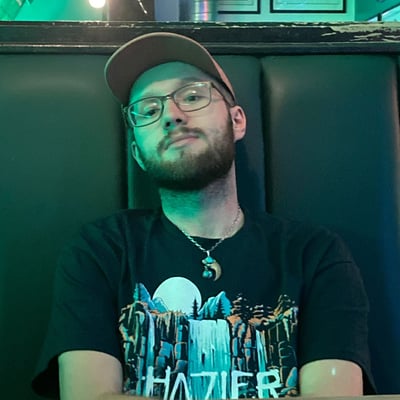
Lars
Being brought up under deaf parents, as a partially hearing child, I have always struggeled with my search of identity. Inspired by far-distant worlds like middle earth and the tunes of Lord Huron, my goal is not only to tell great stories, but also to understand other people and their tales.
